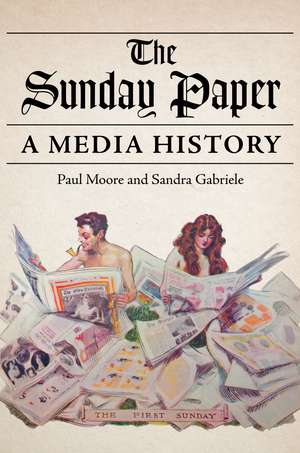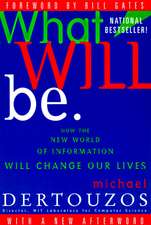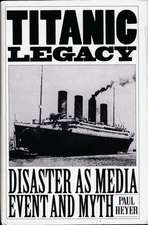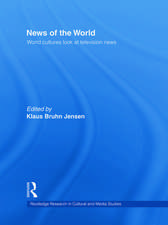The Sunday Paper: A Media History: The History of Media and Communication
Autor Paul Moore, Sandra Gabrieleen Limba Engleză Paperback – 30 aug 2022
Din seria The History of Media and Communication
-
 Preț: 162.45 lei
Preț: 162.45 lei -
 Preț: 162.09 lei
Preț: 162.09 lei -
 Preț: 159.52 lei
Preț: 159.52 lei - 23%
 Preț: 707.25 lei
Preț: 707.25 lei -
 Preț: 175.92 lei
Preț: 175.92 lei -
 Preț: 173.05 lei
Preț: 173.05 lei -
 Preț: 191.84 lei
Preț: 191.84 lei - 18%
 Preț: 620.46 lei
Preț: 620.46 lei -
 Preț: 168.85 lei
Preț: 168.85 lei - 23%
 Preț: 413.79 lei
Preț: 413.79 lei - 9%
 Preț: 681.81 lei
Preț: 681.81 lei -
 Preț: 234.10 lei
Preț: 234.10 lei - 9%
 Preț: 680.95 lei
Preț: 680.95 lei - 9%
 Preț: 681.81 lei
Preț: 681.81 lei - 9%
 Preț: 679.51 lei
Preț: 679.51 lei - 23%
 Preț: 402.13 lei
Preț: 402.13 lei - 8%
 Preț: 687.88 lei
Preț: 687.88 lei - 9%
 Preț: 677.21 lei
Preț: 677.21 lei -
 Preț: 213.65 lei
Preț: 213.65 lei -
 Preț: 218.81 lei
Preț: 218.81 lei -
 Preț: 252.40 lei
Preț: 252.40 lei -
 Preț: 238.28 lei
Preț: 238.28 lei -
 Preț: 225.95 lei
Preț: 225.95 lei -
 Preț: 375.62 lei
Preț: 375.62 lei -

Preț: 202.07 lei
Nou
Puncte Express: 303
Preț estimativ în valută:
38.67€ • 41.35$ • 32.24£
38.67€ • 41.35$ • 32.24£
Carte disponibilă
Livrare economică 27 martie-10 aprilie
Livrare express 12-18 martie pentru 32.54 lei
Preluare comenzi: 021 569.72.76
Specificații
ISBN-13: 9780252086564
ISBN-10: 0252086562
Pagini: 328
Ilustrații: 16 color photographs, 30 black & white photographs, 3 tables
Dimensiuni: 156 x 235 x 30 mm
Greutate: 0.51 kg
Ediția:First Edition
Editura: University of Illinois Press
Colecția University of Illinois Press
Seria The History of Media and Communication
ISBN-10: 0252086562
Pagini: 328
Ilustrații: 16 color photographs, 30 black & white photographs, 3 tables
Dimensiuni: 156 x 235 x 30 mm
Greutate: 0.51 kg
Ediția:First Edition
Editura: University of Illinois Press
Colecția University of Illinois Press
Seria The History of Media and Communication
Recenzii
"Essential for communication collections and for anyone looking at book or literacy history of the period." --Choice
"Paul Moore and Sandra Gabriele's The Sunday Paper: A Media History presents a narrative of the rise of a new form of media in an existing field of publishing power. . . . This book will be of great value for those scholars researching American newspapers as well as those with a theoretical background for understanding media within changing public spheres of knowledge production." --H-Net Reviews
"An engaging and pleasantly readable text, supported by examples, illustrations, and primary sources. . . . The innovation, nurturing, and maturity of the Sunday paper, and its rippling cultural effects, makes for interesting, informative reading for just about everyone." --New York Pennsylvania Collector
"With this meticulously researched and smartly written book, Paul Moore and Sandra Gabriele have demonstrated the central role Sunday newspapers played in the creation of modern media culture. The Sunday Paper recovers a vibrant interactive multimedia form that historians of both popular culture and journalism have long ignored. This book deserves a place on the short shelf of indispensable media histories."--John C. Nerone, coauthor of The Form of News: A History
"While sharing much with the newspapers appearing on the other six days of the week, the Sunday paper was a media experience unto itself. These weekly print spectacles were physically heavy, stuffed with supplements, and offered a kaleidoscopic view of modern life. They were meant to be read but also written upon and cut up, and they offered visual and tactile pleasure for millions of people every week. Sunday newspapers were extraordinary media, and Paul Moore and Sandra Gabriele have written a book that does justice to their strange and wonderful form and content."--Michael Stamm, author of Dead Tree Media: Manufacturing the Newspaper in Twentieth-Century North America
"Paul Moore and Sandra Gabriele's The Sunday Paper: A Media History presents a narrative of the rise of a new form of media in an existing field of publishing power. . . . This book will be of great value for those scholars researching American newspapers as well as those with a theoretical background for understanding media within changing public spheres of knowledge production." --H-Net Reviews
"An engaging and pleasantly readable text, supported by examples, illustrations, and primary sources. . . . The innovation, nurturing, and maturity of the Sunday paper, and its rippling cultural effects, makes for interesting, informative reading for just about everyone." --New York Pennsylvania Collector
"With this meticulously researched and smartly written book, Paul Moore and Sandra Gabriele have demonstrated the central role Sunday newspapers played in the creation of modern media culture. The Sunday Paper recovers a vibrant interactive multimedia form that historians of both popular culture and journalism have long ignored. This book deserves a place on the short shelf of indispensable media histories."--John C. Nerone, coauthor of The Form of News: A History
"While sharing much with the newspapers appearing on the other six days of the week, the Sunday paper was a media experience unto itself. These weekly print spectacles were physically heavy, stuffed with supplements, and offered a kaleidoscopic view of modern life. They were meant to be read but also written upon and cut up, and they offered visual and tactile pleasure for millions of people every week. Sunday newspapers were extraordinary media, and Paul Moore and Sandra Gabriele have written a book that does justice to their strange and wonderful form and content."--Michael Stamm, author of Dead Tree Media: Manufacturing the Newspaper in Twentieth-Century North America
Notă biografică
Paul Moore is a professor of sociology at Ryerson University. He is the author of Now Playing: Early Moviegoing and the Regulation of Fun, winner of the Gertrude J. Robinson Prize. Sandra Gabriele is Vice-Provost for Innovation in Teaching and Learning and an associate professor of communication studies at Concordia University. She is a coeditor of Intersections of Media and Communications: Concepts and Critical Frameworks.

























